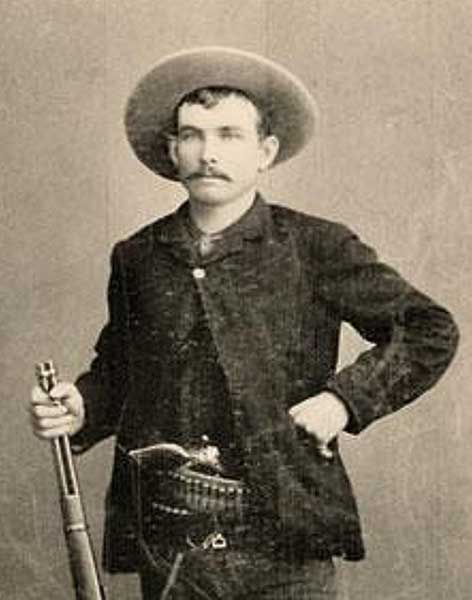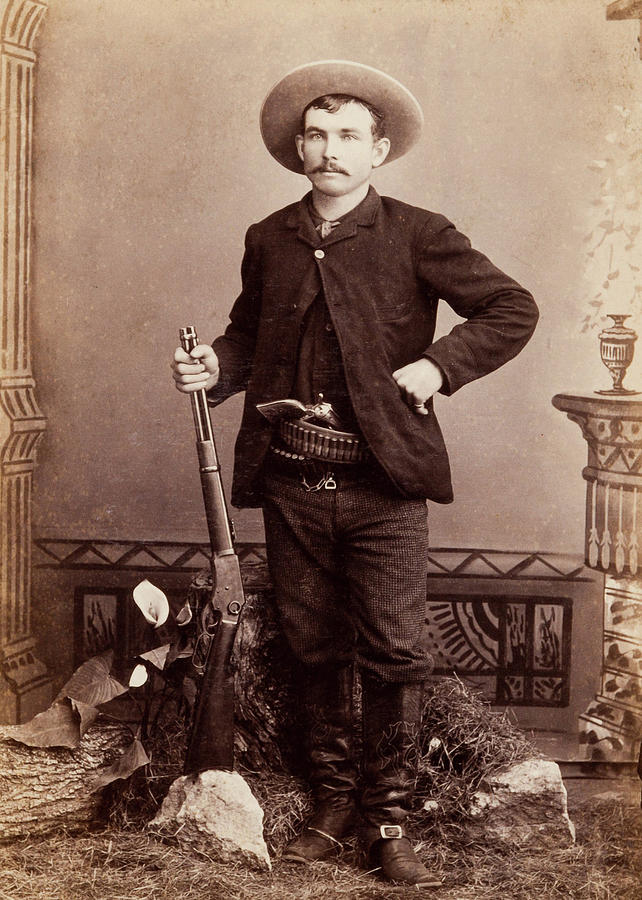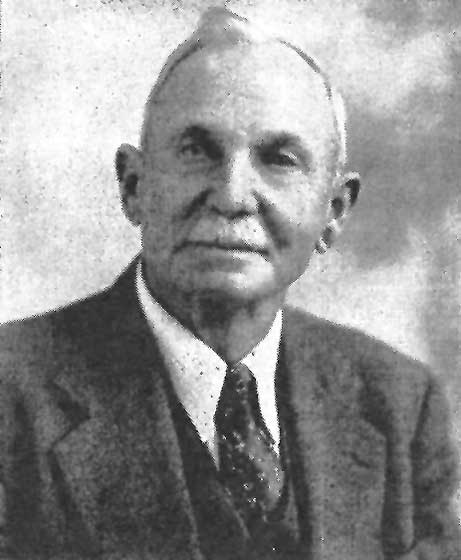
Ira Aten: The Quiet Sentinel Who Forged the American West
In the annals of the American West, where legends were often forged in the smoke of six-shooters and the dust of stampeding cattle, many names ring with a boisterous fame. Yet, there exists a different breed of hero, one whose legacy is built not on flamboyant exploits but on an unyielding commitment to order, a quiet resolve that, over decades, helped transform a lawless frontier into a burgeoning civilization. Ira Aten was such a man – a Texas Ranger, a steadfast lawman, and ultimately, a foundational figure whose understated tenacity left an indelible mark across the vast, untamed territories of the American Southwest.
Born in 1862, in the shadow of the burgeoning American Civil War, Aten’s early life in the rough-and-tumble landscapes of Texas imbued him with a self-reliance and grit that would define his extraordinary career. The post-war South and West were a crucible of change, where established order had crumbled, and new societal norms were being painfully hammered out. It was an environment where might often made right, and the line between justice and vengeance was frequently blurred. Young Aten, witnessing this chaos firsthand, developed a profound respect for the rule of law and an unwavering determination to uphold it.
His path to legend began in 1883 when, at the age of 21, he joined the Texas Rangers, an institution synonymous with frontier justice. The Rangers of that era were not merely peacekeepers; they were often the sole arbiters of law in vast, desolate regions, tasked with everything from tracking rustlers and apprehending murderers to mediating land disputes and quelling outright insurrections. Aten fit the mold perfectly: tall, lean, with eyes that missed nothing, he possessed a quiet demeanor that belied an iron will and a deadly proficiency with firearms when the situation demanded it.

One of his most significant early assignments involved the infamous "Fence-Cutting Wars" that plagued Texas in the mid-1880s. As vast tracts of open range were enclosed by barbed wire, often by powerful cattle barons, small ranchers and cowboys who depended on communal grazing land saw their livelihoods threatened. The result was widespread violence, with fences being cut, property destroyed, and lives lost. Governor John Ireland declared it an insurrection, and the Texas Rangers were deployed to restore order.
Ira Aten, then a fresh-faced Ranger, was at the forefront of this brutal conflict. He and his fellow Rangers faced a deeply polarized populace, where emotions ran high and allegiances were fiercely divided. Aten’s approach was characteristic: methodical, relentless, and utterly impartial. He didn’t take sides; he enforced the law. He tracked fence-cutters and those who retaliated with violence, bringing them to justice regardless of their social standing. His actions, often involving long, solitary patrols and tense confrontations, demonstrated his courage and his unwavering belief in the legal process. Historian Robert Utley noted that men like Aten were "the cutting edge of law and order," pushing back against the anarchy that threatened to engulf the state.
Aten’s reputation as a tireless and incorruptible lawman grew with each successful apprehension. He was known for his exceptional tracking skills and his ability to outwit even the most cunning outlaws. He wasn’t one for grandstanding; his focus was always on the mission. He understood that the mere presence of a determined Ranger could often deter crime, and his quiet authority commanded respect, even from those he pursued.
His service in Texas continued for several years, but the lure of new challenges and the ever-shifting frontier beckoned. In 1890, Ira Aten left the Rangers, though his career as a lawman was far from over. He ventured into New Mexico, a territory still reeling from the aftershocks of the Lincoln County War and plagued by lingering outlaw gangs and cattle rustlers. He settled in the Ruidoso Valley, a rugged region known for its beauty and its lawlessness. Here, Aten was appointed a deputy sheriff, and he quickly set about the daunting task of bringing order to a community that had long been accustomed to living outside the reach of the law.
His methods remained consistent: quiet investigation, relentless pursuit, and a firm hand. He faced down cattle thieves, quelled feuds, and established a semblance of peace where chaos had reigned. His presence alone was often enough to deter criminal activity, as outlaws quickly learned that Aten was a man who would not be bought, intimidated, or outmaneuvered. He operated with a moral compass that pointed steadfastly towards justice, earning him the trust of honest citizens and the fear of the lawless.
From New Mexico, Aten’s journey took him to Arizona, another vast territory grappling with its own struggles against rustling and violence. He continued his work as a lawman and rancher, applying the same principles of integrity and perseverance. But it was in California, in the nascent Imperial Valley, that Aten would embark on the next, and perhaps most transformative, chapter of his life.
In the early 1900s, the Imperial Valley was a harsh, arid desert, a landscape of immense potential but equally immense challenges. Visionaries saw the possibility of transforming this barren land into an agricultural paradise through irrigation. Aten, ever the pioneer, was drawn to this ambitious endeavor. He became involved in ranching and, crucially, in the development of the Imperial Irrigation District. This was a significant pivot for a man who had spent decades chasing outlaws. He transitioned from enforcing law in a violent landscape to helping build a civilized one.
Yet, even in this new role, his law enforcement instincts never truly faded. The Imperial Valley, as it grew, also attracted its share of opportunists and criminals. Aten was soon appointed as an investigator for the Imperial Irrigation District, a role that combined his administrative skills with his deep understanding of frontier justice. He protected water rights, investigated land fraud, and continued to maintain order in a rapidly developing region. He was instrumental in establishing the framework for a stable, prosperous community, proving that his skills extended far beyond just tracking and shooting. He was a builder, a manager, and a foundational citizen.

Ira Aten lived a long and impactful life, passing away in 1953 at the age of 90. His career spanned the entire transition of the American West, from its most violent, untamed days to its emergence as a settled, productive region. He witnessed the end of the open range, the rise of modern agriculture, and the slow but steady triumph of law over lawlessness.
What makes Ira Aten’s story so compelling is not a single, dramatic gunfight, but the cumulative weight of his consistent, unwavering dedication. He wasn’t a showman; he was a craftsman of justice. He embodied the quiet strength required to lay the groundwork for civilization in a land that often resisted it. He was known for his integrity, his fairness, and his quiet determination. He rarely spoke of his exploits, preferring to let his actions speak for themselves. This understated heroism is perhaps best captured by the sentiment often attributed to the early Rangers: "One riot, one Ranger." While Aten certainly faced more than one riot, his steady presence and methodical approach often had the same effect.
His legacy is that of a man who bridged two eras. He was a living link to the raw, untamed West, yet he was also a forward-thinking individual who understood the necessity of progress and development. He adapted his skills, moving from chasing horse thieves to overseeing irrigation projects, always with the underlying goal of fostering stability and prosperity.
In a West often romanticized for its larger-than-life figures and their dramatic clashes, Ira Aten stands out as a testament to the enduring power of quiet strength, unwavering principle, and relentless perseverance. He was a sentinel who watched over a changing land, ensuring that the seeds of law and order, once planted, would take root and flourish. His name may not echo with the same bombast as some of his contemporaries, but his impact on the forging of the American West was no less profound, a quiet monument to a lifetime dedicated to justice.


